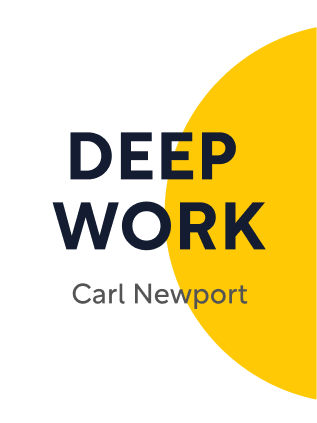

This article is an excerpt from the Shortform book guide to "Deep Work" by Cal Newport. Shortform has the world's best summaries and analyses of books you should be reading.
Like this article? Sign up for a free trial here .
Why is deep work fulfilling work? What value can deep work add to your life?
Sometimes deep work can feel undirected and aimless because the results aren’t often concrete. However, deep work moves you towards happiness and fulfilment. That is because deep work is satisfying, it has a productive psychological effect, and it provides value.
Keep reading to learn why deep work is so fulfilling.
Deep Work Is Fulfilling
Shallow work is deceptively bad because it feels productive and meaningful. Answering emails feels like you’re doing something. Staying on top of the office conversation in Slack makes you feel updated on what’s going on. But, this is not fulfilling work.
In contrast, deep work can often feel undirected and aimless. Complex problems take long periods of thinking and incur multiple dead ends. You produce fewer concrete results, and the results come unpredictably. This can feel like you’re being unproductive. Answering emails feels like a better place to spend your time.
To combat this perception, realize that deep work moves you more meaningfully to happiness and fulfillment.
Deep work is when you’re most capable of tackling your thorniest problems. Because these problems often yield the largest rewards, deep work is often far more rewarding than shallow work.
3 Ways Deep Work Is Satisfying
Beyond this, the book Deep Work offers three other ways deep work leads to fulfillment.
1. Deep Work Has Been Found to Be the State in Which People Feel Most Fulfilled
- Mizani Chifdksalti’s research on flow shows that when people concentrate on a worthwhile task and are pushed to their cognitive limit (not too hard, not too easy), they feel most satisfied.
- Surprisingly, leisure time or pure consumption are not when people report feeling most satisfied. Free time is too unstructured and requires effort to be shaped into something that can be enjoyed.
- This seems to hit on universal behavior drivers, seeking mastery, autonomy, and purpose (for more on this, see our summary of Drive by Daniel Pink).
2. Deep Work Has a Protective Psychological Effect
- Deep work insulates our mind from many distracting, often negative psychic irritants.
- We tend to place a lot of emphasis on our circumstances (what happens to us) when studies suggest our happiness is really dependent on what we pay attention to. Given the same situation, focus on positive things in a situation, and you will be happy; focus on negative things, and you will be sad.
- When you lose focus, you tend to fixate on what’s wrong with your life, rather than what’s right. Problems tend to be more readily available than boons, and without something productive to concentrate on, you dwell on the little problems.
- Checking email is psychologically harmful because it often represents unresolved tasks and complaining people. [Shortform note: furthermore, if you check your email often, recency and availability bias make these issues seem more important than they really are.]
- Deep work protects your mind from mulling over these inconsequential irritants.
- [The book doesn’t comment on why superficial work can’t have positive emotional valence – say, answering happy customer emails.]
3. Deep Work Provides Value
- The third point is most abstract. Philosophically, the rise of secularism and the Enlightenment removed a religious and faith-based source of meaning to many. This easily leads to nihilism. Yet the craftsman has found a source of meaning in work – “by cultivating the skill of discerning the meaning that is already there” – for instance, by finding the value in wood transformed into a table.
- The craftsman does things that are superficially menial – sculpting marble or weaving blankets – but they find value in discovering the beauty within preexisting objects. The description of their task is simple, but the skill is difficult. “We who cut mere stones must always be envisioning cathedrals” – the creed of medieval quarry workers.
- Knowledge workers face a more difficult challenge in finding meaning. Their tasks are less well-defined, and they struggle to find satisfaction. But there is elegance in any work, if you have the right mindset – a block of computer code can be beautiful, as can a marketing slogan, business plan, or new technology.
- Cal Newport argues that “following your passion” based on the specifics of the job is faulty thinking, and unlikely to be satisfying. Rather, with the right mindset, you can find fulfillment in any role.

———End of Preview———
Like what you just read? Read the rest of the world's best book summary and analysis of Cal Newport's "Deep Work" at Shortform .
Here's what you'll find in our full Deep Work summary :
- How deep work is critical for performance and productivity
- Why focus is like a mental muscle
- Why willpower isn't as good as a ritual






